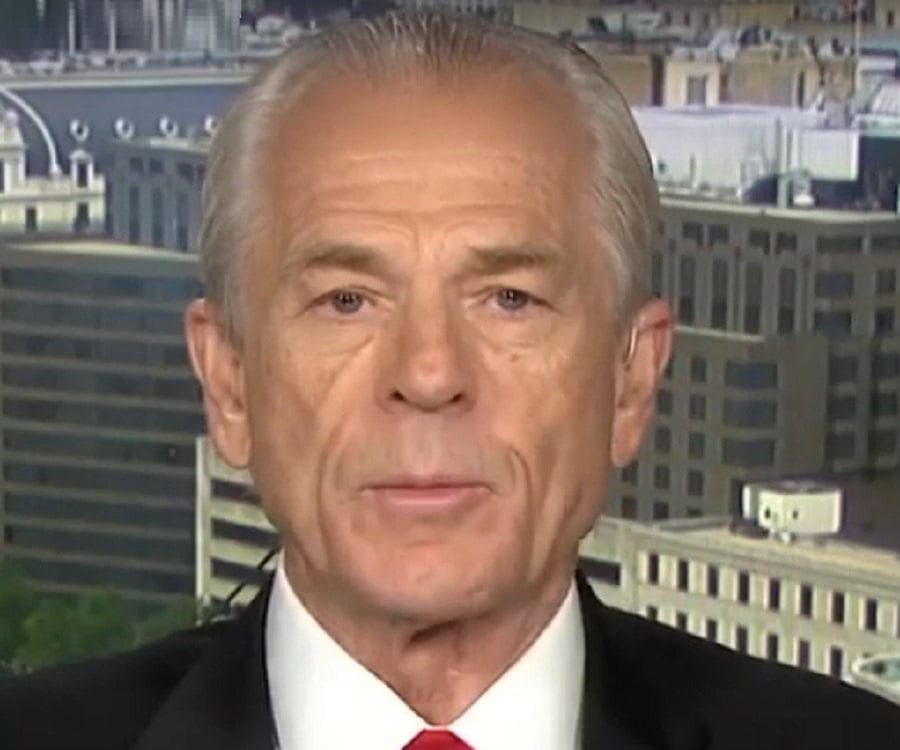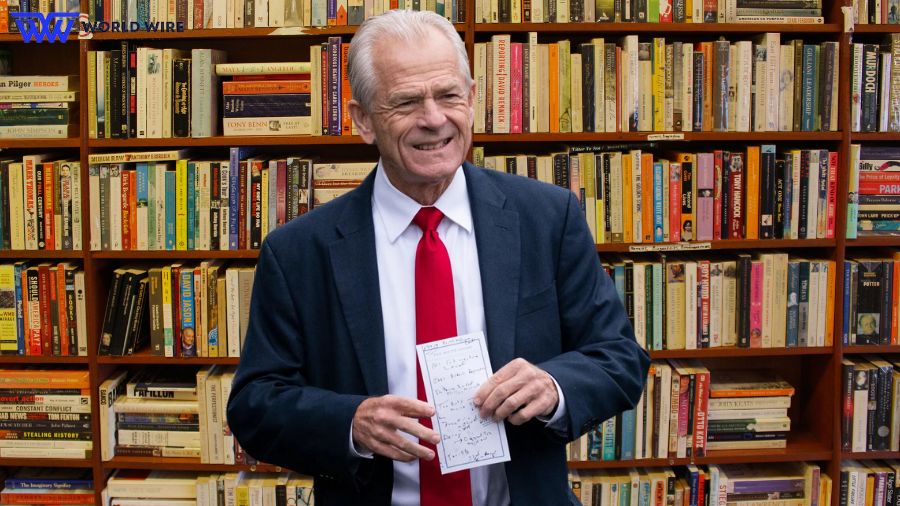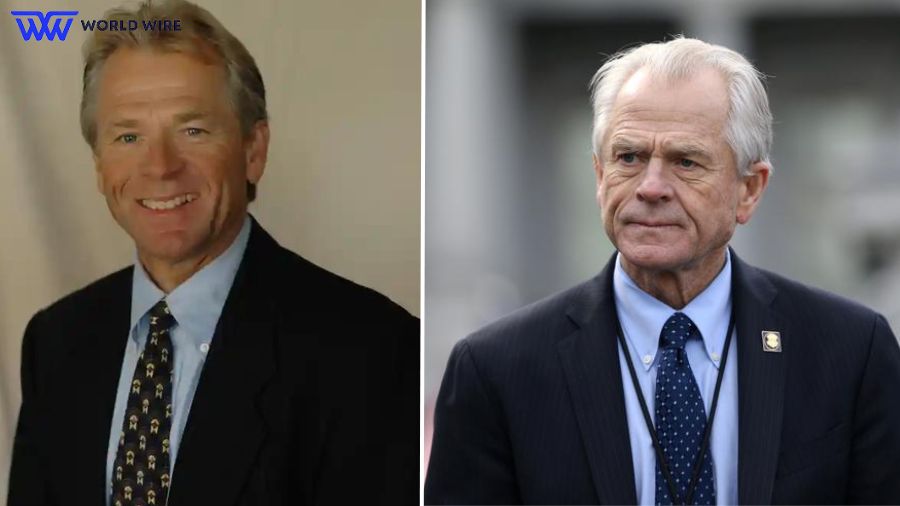Peter Navarro: Nationality, Ethnicity & Career Insights
Is Peter Navarro, the economist and former advisor to President Trump, simply a figure of American politics, or is there a deeper story to uncover? Navarro's life, from his Massachusetts roots to the halls of the White House, is a compelling narrative, woven with threads of heritage, education, and influence.
Born Peter Kent Navarro on July 15, 1949, in Cambridge, Massachusetts, his journey offers a fascinating glimpse into the interplay of personal background and professional achievement. His parents, Alfred Navarro and Evelyn Littlejohn, were both American, born and raised in the United States. This upbringing, however, would later be infused with the rich tapestry of Italian heritage, a significant factor that would shape Navarro's identity and influence his worldview.
| Full Name | Peter Kent Navarro |
| Born | July 15, 1949 (Cambridge, Massachusetts, USA) |
| Nationality | American |
| Parents | Alfred Navarro and Evelyn Littlejohn |
| Education | Tufts University (B.A., 1972), Harvard University (M.B.A., 1979; Ph.D. in Economics, 1986) |
| Career Highlights |
|
| Known For | Economic Advisor; Author; Trade Policy Advocate; Vocal Critic of China's Economic Practices |
| Key Associations | Trump Administration, National Trade Council |
| Books Published |
|
| Political Stance | Conservative, Protectionist (Trade) |
| Source | Wikipedia |
Navarro's upbringing was deeply influenced by his Italian heritage. Growing up in a household that celebrated Italian traditions, he absorbed a strong sense of cultural pride. This background undoubtedly shaped his values and work ethic, providing a unique perspective that would later inform his views on economics and trade. His family's roots played a significant role in shaping his identity and, consequently, his career trajectory.
Before entering the political arena, Navarro cultivated a distinguished academic career. He earned a B.A. from Tufts University in 1972, followed by an M.B.A. in 1979 and a Ph.D. in Economics in 1986, both from Harvard University. He later became a Professor Emeritus of Economics and Public Policy at the University of California, Irvine, further solidifying his expertise and establishing him as a respected figure in the field of economics.
Navarro's influence in the public sphere began to grow with his outspoken criticisms of China's economic policies. He became a prominent voice advocating for changes in U.S. trade practices, often expressing strong views on the perceived imbalance in trade relations between the two nations. This stance, combined with his academic credentials, made him an attractive figure for political figures looking for advice on trade policy.
Navarro's career took a dramatic turn during the 2016 presidential campaign when he served as an economic and trade advisor to Donald Trump. He played a crucial role in shaping the campaign's economic platform, particularly on issues related to trade and manufacturing. Following Trump's election, Navarro joined the White House staff on inauguration day, a testament to the confidence the administration placed in his expertise.
Within the Trump administration, Navarro held several key positions. He served as the assistant to the president, the director of the office of trade and manufacturing policy, and the national defense production act policy coordinator. His primary focus remained on trade, advising on matters such as tariffs, trade agreements, and the overall direction of U.S. trade policy. He became a central figure in advocating for policies like renegotiating trade deals and imposing tariffs on certain goods, actions that often generated controversy.
His role as a senior counselor for trade and manufacturing was pivotal. He was tasked with the critical responsibility of offering counsel on a wide array of issues, spanning from trade negotiations and tariffs to domestic manufacturing and the overall economic vitality of the United States. His deep understanding of economics, coupled with his strong policy viewpoints, greatly impacted the administration's decisions related to trade and the industrial sector.
His role in the White House placed him in the center of significant policy debates. He was present when President Trump signed important executive orders, and he frequently participated in high-level meetings, influencing the direction of trade policies. His direct involvement in the Trump administration placed him at the heart of some of the most significant trade policy shifts in recent American history.
Navarro's policy positions were often aligned with a protectionist stance. He advocated for measures to protect American industries from foreign competition, emphasizing the need to safeguard domestic jobs and boost manufacturing. His views, while sometimes criticized, found resonance with certain segments of the American population, particularly those who felt negatively impacted by globalization and trade liberalization.
Navarro's contributions extended beyond government service. He is the author of numerous books, including "Death by China," which brought him considerable attention. This book, along with others he wrote, highlighted his views on China's economic practices and their implications for the United States. These publications gave him a wider audience and helped to solidify his reputation as an expert commentator on trade and economics.
Peter Navarro's involvement in the Trump administration was not without its challenges. His strong views on trade and manufacturing often put him at odds with other members of the administration and with foreign governments. However, he remained a steadfast advocate for the policies he believed in, even when facing opposition.
The question of Peter Navarro's nationality is, in many ways, straightforward, as his parents were American, born and raised in the United States. But the story doesnt end there; it is the interplay of this American heritage with the rich traditions of his Italian ancestry that adds a layer of complexity and depth to understanding his viewpoints.
Understanding the nuances of Peter Navarro's background, from his Italian heritage to his academic achievements and his influential role within the Trump administration, provides a more complete picture of his perspectives and contributions. The fusion of his heritage, education, and professional life makes his story a fascinating case study in American identity and the influences that shape the decision-makers who impact the world.
His presence in the public sphere remains significant. As a prominent economist, an author, and a commentator on issues of trade and economics, Navarro continues to be a relevant voice in the ongoing debate about the future of the American economy and its relationship with the rest of the world.
In a Tuesday interview, Navarro stated his race-blindness stemmed from being from California, a place where racial distinctions are often not emphasized. This viewpoint provides an additional dimension to his views on identity and policy. However, this perspective is only one facet of his identity. The full picture is a rich mix of American and Italian roots.
Peter Navarros biography is marked by significant achievements and a consistent pursuit of his convictions. The story of Peter Navarro, the man, is about more than just his policy positions; its about the influences that have forged him into the person he is today, and the impact that his work continues to have on the economic landscape of the United States and beyond.


